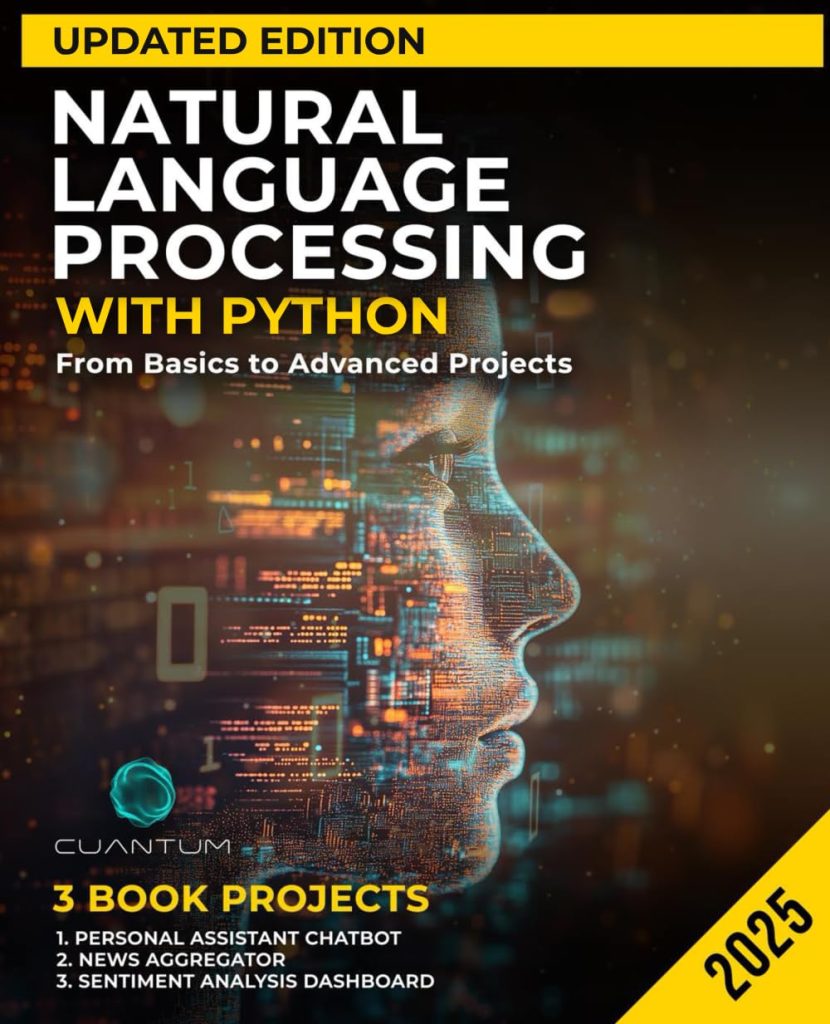
At the heart of SQLAlchemy lies a robust and intricate type system, a veritable tapestry of data representation that weaves together the realms of Python and SQL. This type system serves as the bridge, translating the rich, dynamic types of Python into the rigid, structured types of SQL databases. Just as a painter chooses colors to evoke emotion, a developer must choose the right SQLAlchemy types to ensure that data is not only stored correctly but also conveys the intended meaning.
SQLAlchemy provides a plethora of built-in types, each designed to mirror the SQL data types found in various database systems. From Integer to String, from Date to Boolean, these types encapsulate the essence of their SQL counterparts, allowing for seamless interactions with the database. However, as projects grow and evolve, the need for custom types may arise—types that capture the nuances of your data that standard types cannot.
The type system operates on the premise of declarative mapping, where each class attribute corresponds to a database column. When defining a model, one specifies the type of each column, which SQLAlchemy then uses to generate the appropriate SQL statements. Ponder the following example:
from sqlalchemy import Column, Integer, String, Date
from sqlalchemy.ext.declarative import declarative_base
Base = declarative_base()
class User(Base):
__tablename__ = 'users'
id = Column(Integer, primary_key=True)
name = Column(String, nullable=False)
signup_date = Column(Date)
In this snippet, we see the User model, where the type of each attribute is clearly defined. The Column class serves as a conduit through which SQLAlchemy understands how to treat each attribute in terms of database operations.
Understanding the type system also involves delving into the nuances of how SQLAlchemy handles type conversion. When data is retrieved from the database, SQLAlchemy automatically converts it from the raw SQL format to the corresponding Python type. This conversion is not merely a mechanical process; it’s a transformation that imbues the data with Pythonic sensibilities. For example, a SQL INTEGER becomes a Python int, while a SQL VARCHAR transforms into a Python str.
Moreover, the type system is extensible, allowing developers to define their own custom types that can encapsulate more complex behaviors or validation logic. That’s where the true power of SQLAlchemy’s type system shines, offering a canvas upon which developers can paint their unique data structures. Custom types can be defined by subclassing TypeDecorator, which will allow you to specify how data should be converted to and from the database.
In the next part of our exploration, we will venture into the creation of these custom SQLAlchemy types, embarking on a journey that transcends the ordinary, where the mundane becomes extraordinary through the power of thoughtful design and implementation.
Creating Custom SQLAlchemy Types
Creating a custom SQLAlchemy type is akin to sculpting a block of marble into a unique piece of art; it requires both vision and precision. The process begins with understanding the foundational class, TypeDecorator, which serves as the canvas for our custom types. By extending this class, we can define how our data interacts with the database, ensuring that it isn’t only stored correctly but also imbued with the desired characteristics that standard types may lack.
Let us embark on this journey with a tangible example—a custom type designed to handle a particular kind of data: a JSON object. Imagine we need to store configuration settings in a database. Using a standard string type, we would lose the structure and validity of our data. Instead, we can create a custom type that properly serializes and deserializes JSON data.
from sqlalchemy.types import TypeDecorator, String
import json
class JSONType(TypeDecorator):
impl = String
def process_bind_param(self, value, dialect):
# Convert the Python dictionary to a JSON string for storage
if value is not None:
return json.dumps(value)
return value
def process_result_value(self, value, dialect):
# Convert the JSON string back to a Python dictionary
if value is not None:
return json.loads(value)
return value
In this snippet, we define the JSONType class, which subclasses TypeDecorator. Here, the impl attribute specifies that we are ultimately storing our data as a string in the database. The process_bind_param method is called when we save data to the database, converting our Python dictionary into a JSON string. Conversely, the process_result_value method is invoked when retrieving data, allowing us to transform the JSON string back into a Python dictionary.
With our custom type in place, we can now utilize it within our SQLAlchemy models. Let’s explore how to integrate our JSONType into a model definition:
from sqlalchemy import Column, Integer
from sqlalchemy.ext.declarative import declarative_base
Base = declarative_base()
class Config(Base):
__tablename__ = 'configurations'
id = Column(Integer, primary_key=True)
settings = Column(JSONType, nullable=False)
In this Config model, the settings column is defined using our JSONType, allowing us to store complex configuration data in a structured manner. This not only preserves the integrity of our data but also simplifies the interaction with it, as we can work with native Python objects instead of raw JSON strings.
Creating custom SQLAlchemy types empowers developers to encapsulate complex logic and behaviors within a single cohesive unit. The interplay between the database and Python becomes a dance of elegance, where the subtleties of data handling are managed with finesse. It’s through this thoughtful design that we elevate our applications, transforming mere data storage into a rich, dynamic experience. As we continue to explore the capabilities of SQLAlchemy, we will delve deeper into the realm of type decorators, enhancing the functionality of our custom types even further.
Implementing Type Decorators for Enhanced Functionality
As we delve into the art of extending SQLAlchemy’s capabilities, we encounter the wondrous idea of type decorators. These decorators serve not merely as embellishments but as transformative agents that enhance the functionality of our custom types, allowing them to adapt and respond to our unique requirements. By using type decorators, we can introduce additional behaviors or modify existing ones, all while maintaining the integrity of our data and the clarity of our code. It is a subtle dance of abstraction, where the elegance of Python intertwines with the rigidity of SQL.
Imagine, if you will, a scenario where we desire to impose constraints on our custom types—perhaps we want to ensure that the JSON data we store adheres to a specific schema or that certain fields are always present. Through the power of type decorators, we can weave this validation logic directly into our custom types, rendering them not only storage mechanisms but also guardians of data integrity. This approach encapsulates both the validation logic and the serialization/deserialization processes within the confines of a singular, coherent structure.
To illustrate this concept, let us further refine our JSONType class by introducing a schema validation step. We will use a simple schema checker to ensure that the JSON data conforms to our desired structure before it’s stored in the database. The schema can be defined as a dictionary, where each key represents a field that must exist within the JSON object.
from sqlalchemy.types import TypeDecorator, String
import json
class JSONType(TypeDecorator):
impl = String
schema = {'name': str, 'version': str} # Example schema
def process_bind_param(self, value, dialect):
if value is not None:
self.validate_schema(value)
return json.dumps(value)
return value
def process_result_value(self, value, dialect):
if value is not None:
return json.loads(value)
return value
def validate_schema(self, value):
for key, expected_type in self.schema.items():
if key not in value:
raise ValueError(f'Missing key: {key}')
if not isinstance(value[key], expected_type):
raise ValueError(f'Expected type for {key} is {expected_type}, got {type(value[key])}.')
In this augmented version of JSONType, we introduce a validate_schema method that checks whether the incoming dictionary contains the required keys and that their associated values are of the correct type. This validation occurs in the process_bind_param method, ensuring that only data conforming to our schema is serialized and stored in the database. The result is a fortified data structure, one that not only captures the essence of our configuration settings but also safeguards against unforeseen discrepancies.
Using this enhanced JSONType in our model remains a seamless experience. Just as before, we can define our model with this custom type, but now we benefit from the added assurance that our data adheres to the expected format:
class Config(Base):
__tablename__ = 'configurations'
id = Column(Integer, primary_key=True)
settings = Column(JSONType, nullable=False)
With this implementation, any attempt to insert a configuration that does not meet the schema requirements will raise a ValueError, allowing us to catch potential issues early in the development process. Thus, we have transformed our JSONType into a vigilant custodian of data integrity, illustrating the profound impact of type decorators.
As we continue to explore the depths of SQLAlchemy’s type system, we find that the potential for enhancing our custom types is limited only by our imagination. The interplay between data representation and validation through type decorators invites us into a realm where our data not only exists but flourishes within the constraints and expectations we set. Through thoughtful design and implementation, we elevate our applications, ensuring that they not only function correctly but also resonate with the clarity and elegance of well-crafted code.
Best Practices for Custom Types and Decorators
As we tread further into the intricate landscape of SQLAlchemy, we must heed the clarion call of best practices. The journey of creating custom types and decorators is fraught with perils, yet it is also paved with the potential for elegance and efficiency. To navigate this terrain successfully, one must embrace certain guiding principles that not only enhance the robustness of our implementations but also ensure that our code remains maintainable and comprehensible over time.
One primary tenet of best practices is the importance of adhering to the principle of single responsibility. Each custom type should encapsulate a distinct piece of functionality, allowing it to serve a specific purpose without becoming a catch-all for various behaviors. By doing so, you maintain clarity within your codebase. For instance, if you find yourself needing to validate a JSON schema, create a dedicated type for JSON validation rather than overloading a general-purpose type with myriad responsibilities. This separation of concerns leads to a cleaner and more manageable code structure.
class JSONType(TypeDecorator):
impl = String
def process_bind_param(self, value, dialect):
if value is not None:
self.validate_schema(value)
return json.dumps(value)
return value
def process_result_value(self, value, dialect):
if value is not None:
return json.loads(value)
return value
def validate_schema(self, value):
# Perform schema validation
pass # Implementation details here
Moreover, documentation serves as the cornerstone of best practices. Each custom type and decorator should be thoroughly documented, elucidating its purpose, the parameters it expects, and the transformations it performs. As our projects grow and evolve, the documentation becomes an invaluable resource for both current and future developers, providing clarity amidst the complexity. It is through detailed docstrings and comments that we convey the intent behind our abstractions, enabling others to appreciate the craftsmanship embedded within our code.
class JSONType(TypeDecorator):
"""A custom SQLAlchemy type for handling JSON data with schema validation.
Attributes:
impl (String): The underlying type used for storage.
"""
impl = String
def process_bind_param(self, value, dialect):
"""Convert Python dictionary to a JSON string for storage."""
if value is not None:
self.validate_schema(value)
return json.dumps(value)
return value
def process_result_value(self, value, dialect):
"""Convert JSON string back to a Python dictionary."""
if value is not None:
return json.loads(value)
return value
def validate_schema(self, value):
"""Validate that the JSON data conforms to the expected schema."""
pass # Implementation details here
Another principle worth embracing is to ensure that custom types are well-tested. A robust suite of unit tests can catch potential issues early in the development lifecycle, safeguarding against regressions and ensuring that the type behaves as expected under various scenarios. Testing not only validates the functionality but also serves as a form of documentation, illustrating how the type is intended to be used. Through diligent testing practices, we instill confidence in our custom types, enabling us to refactor or extend them with assurance.
import unittest
class TestJSONType(unittest.TestCase):
def test_process_bind_param(self):
json_type = JSONType()
self.assertEqual(json_type.process_bind_param({'key': 'value'}, None), '{"key": "value"}')
def test_process_result_value(self):
json_type = JSONType()
self.assertEqual(json_type.process_result_value('{"key": "value"}', None), {'key': 'value'})
def test_validate_schema(self):
json_type = JSONType()
with self.assertRaises(ValueError):
json_type.validate_schema({'wrong_key': 'value'}) # Assuming 'wrong_key' is not part of the schema
Lastly, think performance implications when designing custom types. While encapsulating complex logic is laudable, it’s imperative to avoid unnecessary complexity that could lead to performance bottlenecks. Profile your code, identify any slowdowns, and refactor as needed. The elegance of your solution should not come at the cost of efficiency. By balancing clarity with performance, you forge a path that is as efficient as it is aesthetically pleasing.
Embracing best practices in the context of custom SQLAlchemy types and decorators is akin to cultivating a garden: it requires patience, attention, and care. By adhering to the principles of single responsibility, thorough documentation, rigorous testing, and performance awareness, you can cultivate a rich ecosystem of types that not only serve your application well but also stand the test of time, remaining resilient amidst the changing landscapes of development.
Testing and Debugging Custom SQLAlchemy Types
As we traverse the labyrinth of custom SQLAlchemy types, we inevitably confront the vital practice of testing and debugging. This stage is not merely a formality; it is the crucible through which our creations are refined, ensuring that they not only function as intended but also withstand the scrutiny of real-world usage. In the sphere of software development, testing acts as both shield and sword, protecting us from the perils of unexpected behavior and empowering us to boldly iterate on our designs.
To embark on this journey, one must first embrace the philosophy of test-driven development (TDD). By defining tests before writing code, we lay a foundation that clearly articulates our expectations. This principle holds especially true for custom SQLAlchemy types, where the interplay between Python objects and SQL representations is fraught with potential pitfalls. Consider our earlier JSONType as a prime candidate for rigorous testing.
import unittest
class TestJSONType(unittest.TestCase):
def setUp(self):
self.json_type = JSONType()
def test_process_bind_param_valid(self):
self.assertEqual(
self.json_type.process_bind_param({'key': 'value'}, None),
'{"key": "value"}'
)
def test_process_bind_param_invalid(self):
with self.assertRaises(ValueError):
self.json_type.process_bind_param({'wrong_key': 'value'}, None)
def test_process_result_value(self):
self.assertEqual(
self.json_type.process_result_value('{"key": "value"}', None),
{'key': 'value'}
)
def test_process_result_value_empty(self):
self.assertIsNone(self.json_type.process_result_value(None, None))
In this testing suite, we define a series of tests that validate the behavior of our JSONType class. The setUp method initializes an instance of JSONType before each test runs, ensuring that our tests remain isolated and repeatable. Each test method checks specific aspects of our type’s functionality, such as binding parameters and processing results. This structured approach not only clarifies our intentions but also makes it easier to identify where any issues may arise.
As we delve deeper into debugging, we encounter the necessity of logging. Logging serves as our window into the inner workings of our application, providing insights that may otherwise remain obscured. By strategically placing logging statements within our custom types, we can illuminate the paths taken by our data as it traverses the various stages of processing. That is especially useful when dealing with complex transformations that could lead to unexpected results.
import logging
class JSONType(TypeDecorator):
impl = String
logger = logging.getLogger(__name__)
def process_bind_param(self, value, dialect):
if value is not None:
self.logger.debug("Binding parameter value: %s", value)
self.validate_schema(value)
json_value = json.dumps(value)
self.logger.debug("Converted to JSON string: %s", json_value)
return json_value
return value
In this modification, we introduce a logger that records the binding process. By capturing both the incoming value and the resulting JSON string, we gain valuable context that can help diagnose issues if our type does not behave as expected. This practice of introspection is invaluable with an emphasis on where data can often take unexpected forms, and it empowers us to identify and address problems before they escalate into catastrophic failures.
Furthermore, we must not overlook the importance of integration testing. While unit tests focus on the minutiae of individual components, integration tests assess the interactions between these components within the broader context of the application. For our JSONType, this could involve testing how it behaves within a complete SQLAlchemy model, ensuring that it plays harmoniously with the ORM layer and the underlying database.
class TestConfigModel(unittest.TestCase):
def setUp(self):
self.engine = create_engine('sqlite:///:memory:')
Base.metadata.create_all(self.engine)
self.Session = sessionmaker(bind=self.engine)
def test_config_model_integration(self):
session = self.Session()
config = Config(settings={'name': 'example', 'version': '1.0'})
session.add(config)
session.commit()
retrieved_config = session.query(Config).first()
self.assertEqual(retrieved_config.settings, {'name': 'example', 'version': '1.0'})
In this integration test, we create an in-memory SQLite database to evaluate how our Config model interacts with the JSONType. This holistic view allows us to verify not only the correctness of our custom type but also its seamless integration within the larger application ecosystem. Such tests serve as a safety net, catching issues that unit tests might miss, and ensuring that our custom types do not disrupt the delicate balance of our application.
As we navigate the testing and debugging landscape, we discover that a robust strategy encompasses unit tests, logging, and integration tests, all working in concert to ensure that our custom SQLAlchemy types stand resilient against the tides of change. It’s through this meticulous practice that we can cultivate confidence in our creations, allowing them to flourish in the wild, where the unpredictable nature of data and requirements reigns supreme.






